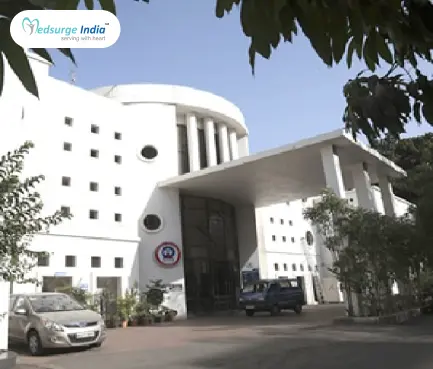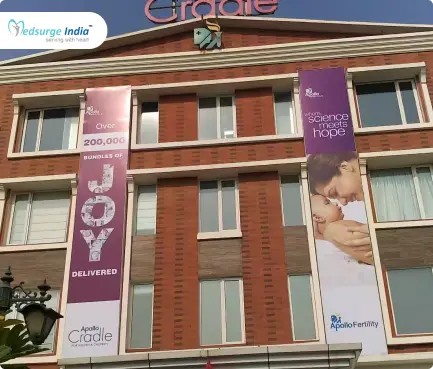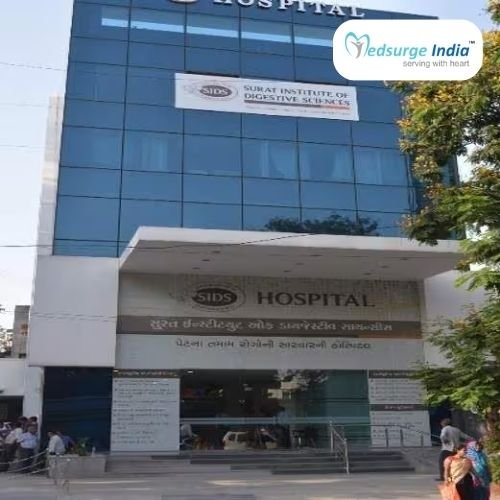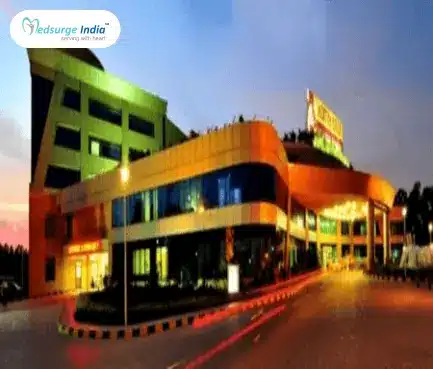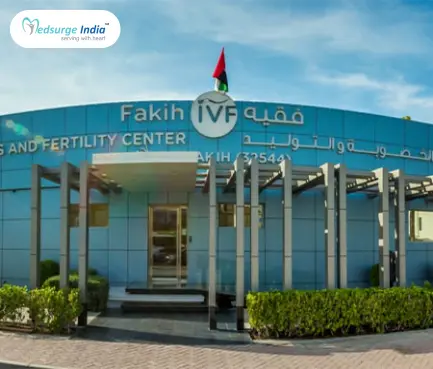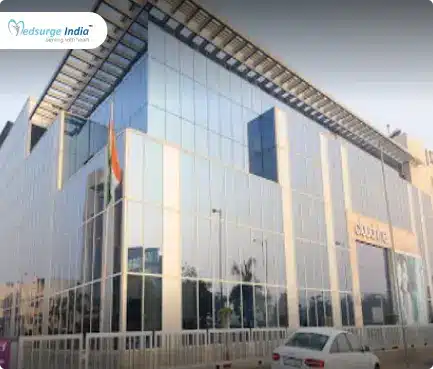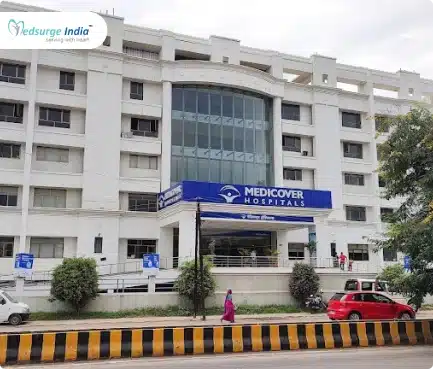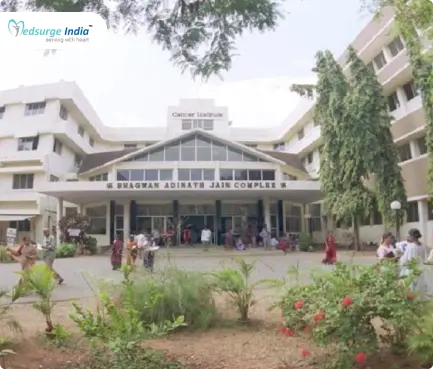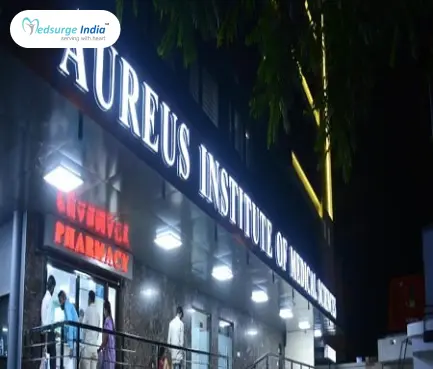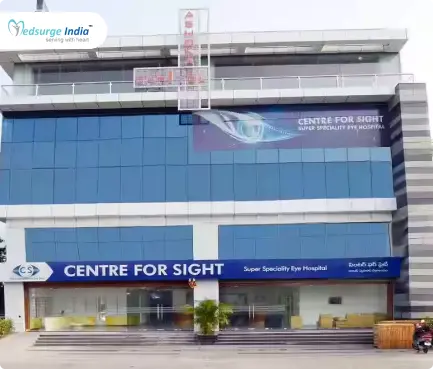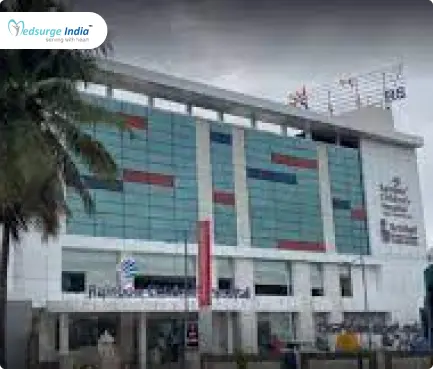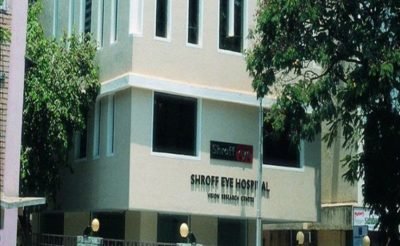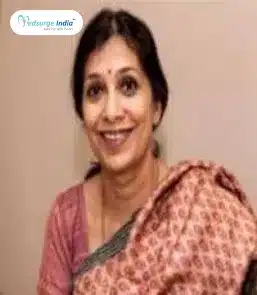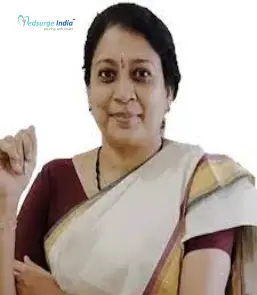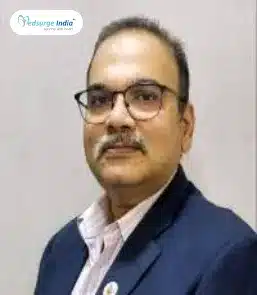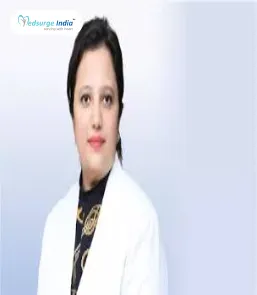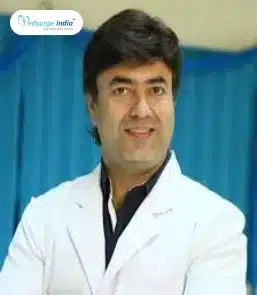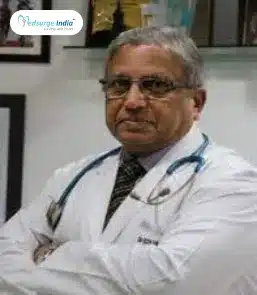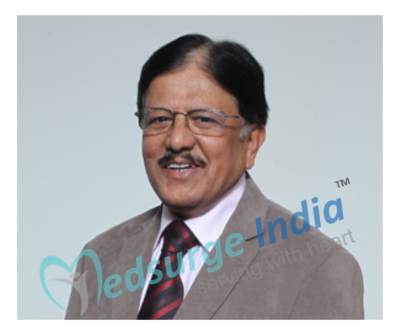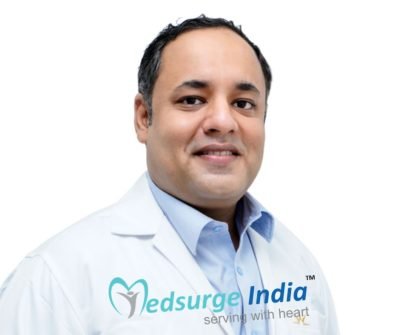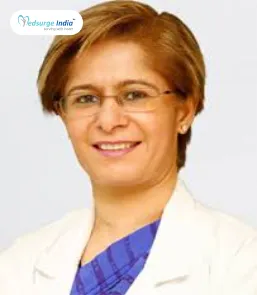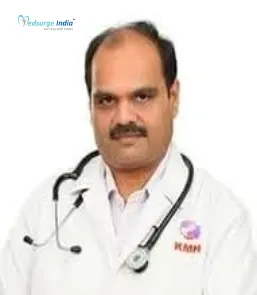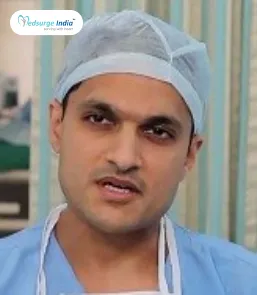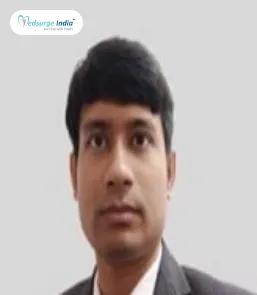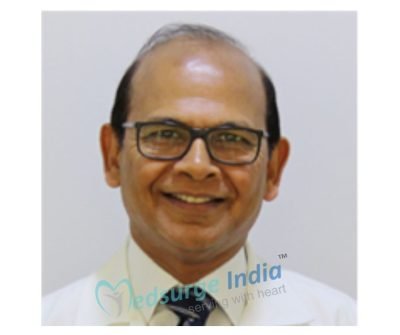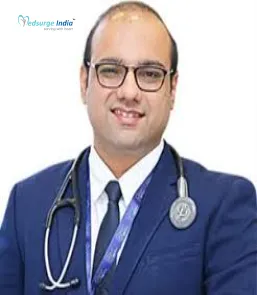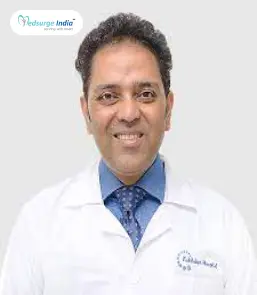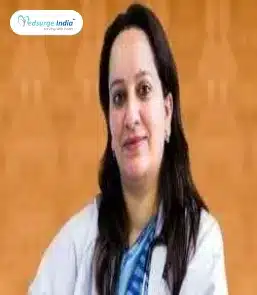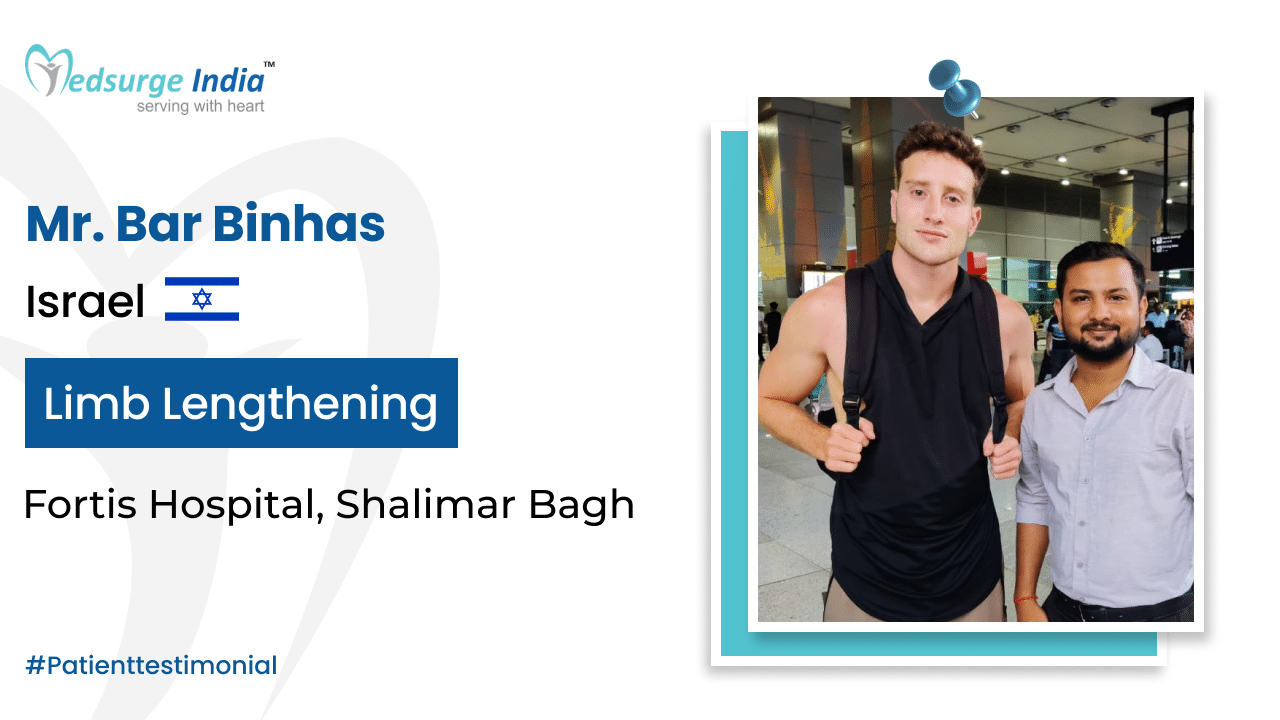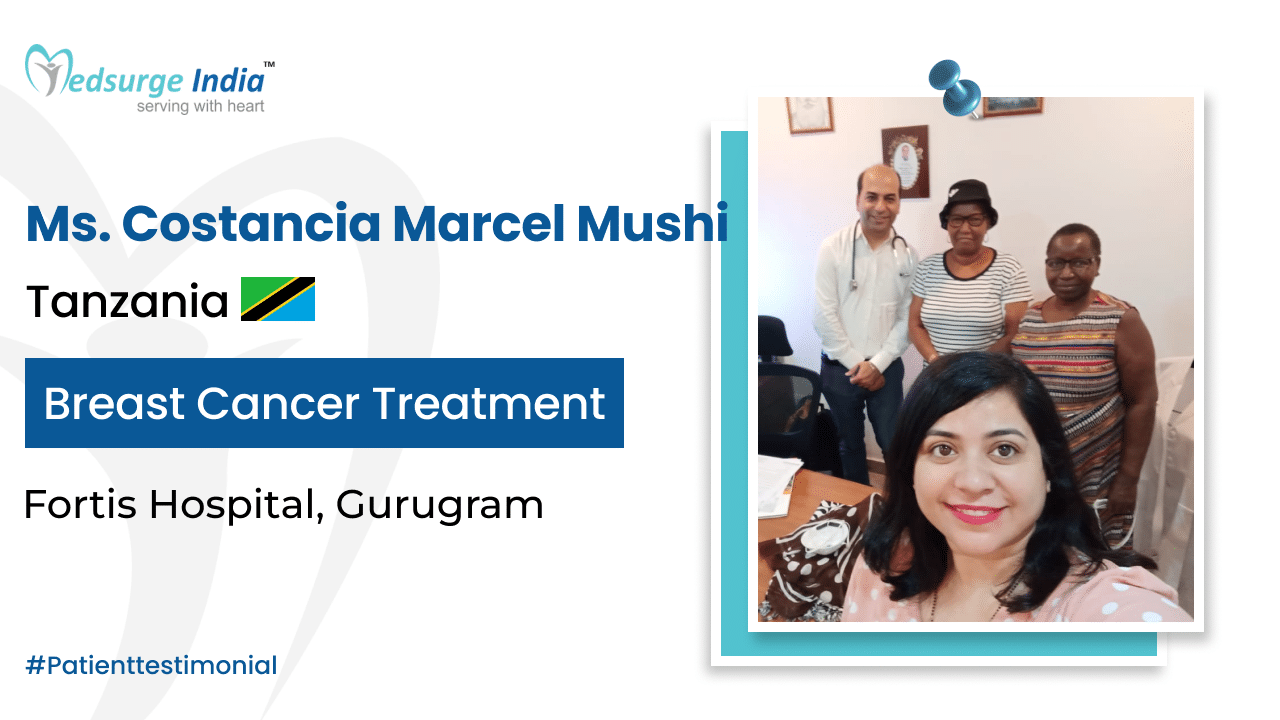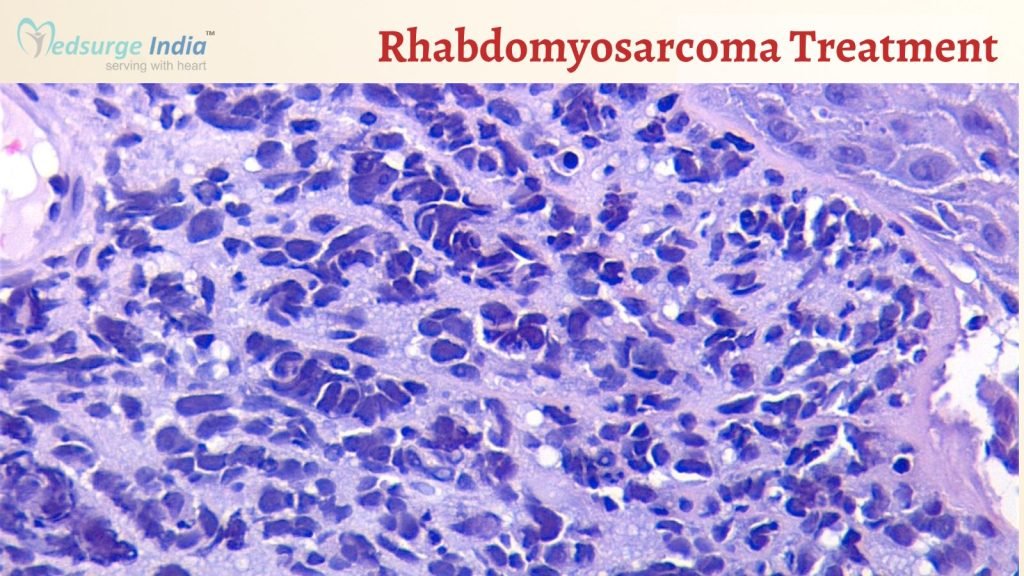
Rhabdomyosarcoma is a rare type of cancer that primarily affects children and adolescents. It can happen anywhere in the body, but it most commonly occurs in the head and neck, arms and legs, and urinary and reproductive organs. Surgery, chemotherapy, radiation, and supportive care are all options for rhabdomyosarcoma treatment in India. Several factors can have an impact on survival. Patient outcomes vary considerably, with 5-year survival rates ranging from 35% to 95% depending on the type of RMS involved, so an accurate diagnosis is essential for effective treatment and management. Because of the heterogeneity of Rhabdomyosarcoma tumors and the lack of strong genetic markers of the disease, accurate and timely diagnosis is generally inappropriate.
The overall cost of rhabdomyosarcoma treatment in India is quite low as compared to other developed countries like the USA and the UK. Major advances in the treatment of rhabdomyosarcoma in India have significantly improved outcomes. People must be monitored for the rest of its life for the potential long-term effects of intensive chemotherapy and radiation.
What Is Rhabdomyosarcoma?
Rhabdomyosarcoma is one of the cancer types that affect the muscles. It is most prevalent in children and adolescents. The disease begins in mesenchymal cells, which are muscle-forming cells. The cells in rhabdomyosarcoma change and grow out of control, resulting in one or more tumors. Rhabdomyosarcoma can develop anywhere in the body, but it is most commonly found in the following areas:
- The arms and legs
- The head and neck.
- A urinary system such as the bladder
- A reproductive system such as the vagina, uterus, and testes
Rhabdomyosarcoma is rare cancer. In the world, only about 700 people are diagnosed each year. The vast majority of them are children or adolescents. Rhabdomyosarcomas can be classified as follows:
- Embryonal Rhabdomyosarcoma
- Botryoid Rhabdomyosarcoma
- Spindle Rhabdomyosarcoma
- Alveolar Rhabdomyosarcoma
- Pleomorphic and Undifferentiated Rhabdomyosarcoma
The type of rhabdomyosarcoma, where it begins, tumor size, and whether cancer has spread all influence the prognosis and treatment decisions. Surgery, chemotherapy, and radiation therapy are commonly used in treatment.
What Are the Symptoms of Rhabdomyosarcoma?
The signs and symptoms of rhabdomyosarcoma are determined by the location of cancer. For an instance, If the cancer is in the head or neck, signs and symptoms may include, among others:
- Headache
- Eye enlargement or swelling
- Nose, throat, or ear bleeding
If the cancer is in the urinary or reproductive system, the following signs and symptoms may occur:
- Urinary incontinence and blood in the urine
- Bowel Movement Difficulties
- A vaginal or rectum mass or bleeding
Signs and symptoms of cancer in the arms or legs may include, but are not limited to:
- Arm or leg swelling or a lump
- Pain in the affected area, though there is sometimes no pain.
What Are the Causes of Rhabdomyosarcoma?
It is unclear what actually causes rhabdomyosarcoma. Doctors know that rhabdomyosarcoma develops when a cell’s DNA changes. The DNA of a cell contains the instructions that tell it what to do. The changes instruct the cell to multiply quickly and to continue to live when healthy cells would normally die. As a result, a mass (tumor) of abnormal cells forms, which can invade and destroy healthy body tissue. The abnormal cells can separate and spread (metastasize) throughout the body.
Risk Factors Rhabdomyosarcoma Treatment-
The following factors may increase the risk of rhabdomyosarcoma:
- Cancer runs in the family. The risk of rhabdomyosarcoma is higher in children who have a blood relative who has had cancer, such as a parent or sibling, especially if cancer occurred when the child was young.
- However, the majority of children with rhabdomyosarcoma have no family history of cancer.
- Cancer risks are increased by genetic syndromes.
- Rhabdomyosarcoma has been linked in rare cases to genetic syndromes passed down from parents to children, such as neurofibromatosis 1, Noonan syndrome, Li-Fraumeni syndrome, Beckwith-Wiedemann syndrome, and Costello syndrome.
How Is Rhabdomyosarcoma Diagnosed?
Rhabdomyosarcoma is diagnosed typically through a physical exam to better understand the symptoms you or your child are experiencing. Other tests and procedures may be recommended based on the findings.
Your doctor may recommend one or more imaging tests to investigate symptoms, detect cancer, and identify signs of cancer spread.
Imaging tests may include the following:
- X-ray
- Tomography by computer (CT Scan)
- Magnetic resonance imaging (MRI)
- PET (positron emission tomography)
- Bone scan
A biopsy procedure is used to collect a sample of suspicious cells for testing in the laboratory. Tests can determine whether the cells are cancerous and the type of cancer.
The following biopsy procedures are used to diagnose rhabdomyosarcoma:
Needle Biopsy: The doctor guides a thin needle through the skin into the tumor. The needle is used to extract small pieces of tumor tissue.
Surgical Biopsy: The doctor makes an incision in the skin and removes the entire tumor (excisional biopsy) or a portion of the tumor (partial biopsy) (incisional biopsy).
Rhabdomyosarcoma Treatment Cost In India
On average, Rhabdomyosarcoma Treatment Cost in India starts from USD 5000. The cost of Rhabdomyosarcoma treatment in India will also depend on various factors.
Estimated prices depending on different cities in India
| Cities | Starting Price |
| Delhi | USD 5000 |
| Gurgaon | USD 5200 |
| Noida | USD 5200 |
| Mumbai | USD 5500 |
| Hyderabad | USD 5100 |
| Chennai | USD 5200 |
| Kolkata | USD 5100 |
| Bangalore | USD 5200 |
Note: Do remember that the pricing and the treatment for Rhabdomyosarcoma Treatment cost in India will vary depending on the patient’s choice and other various factors.
Factors That Can Affect Rhabdomyosarcoma Treatment Cost in India
The following here are some variables that can affect Rhabdomyosarcoma Treatment Cost in India:
- Medication costs.
- Duration of treatment.
- Geographical location.
- Hospitalization expenses.
- Government policies and subsidies.
- Medical tourism packages.
- Hospital reputation and infrastructure.
- The expertise and experience of medical professionals.
- The type and frequency of diagnostic procedures.
- The choice of treatment modality.
Furthermore, even the standard and grade of medical care and amenities are comparable to those of the most prestigious healthcare facilities in the world, even when the expense of lodging, meals, and transportation is taken out. Also, under the direction of the most skilled physicians, Medsurge India provides patients with the lowest Rhabdomyosarcoma Treatment Cost in India.
Get Free Cost Estimation
Procedure
What Are the Treatment Options for Rhabdomyosarcoma?
Your child’s medical team will recommend a combination of treatments based on the following factors:
- Rhabdomyosarcoma stage and type
- Potential side effects
- The individual’s overall health and preferences.
The following are the major types of treatment for rhabdomyosarcoma in India:
- Chemotherapy: It involves injecting medications into the bloodstream. Cancer cells are killed or prevented from dividing and spreading by the drugs. Most children with rhabdomyosarcoma receive chemotherapy to reduce the likelihood of the cancer returning. There are ongoing studies to test new drugs and drug combinations.
- Surgery: A surgeon will remove a portion or all of the tumor as well as some surrounding tissue. In almost all cases of rhabdomyosarcoma, surgical removal, also known as excision, is used.
- Radiation therapy: It employs intense energy beams (typically high-energy X-rays) to kill or slow the growth of cancer cells.
- Palliative care: It is also known as supportive care, which treats a person’s symptoms as well as the side effects of medications. Treatments for emotional, mental, and social needs may also be included. Medication, nutrition, therapy, and relaxation are some examples.
The cost of rhabdomyosarcoma treatment in India can be determined by several factors, including:
- The condition’s severity
- The hospital’s location and accreditations were chosen.
- Experience as a surgeon
- Duration of hospital stay
- Room type
- Whether any additional procedures are needed
What Is the Prognosis for Children Suffering from Rhabdomyosarcoma?
Approximately 70% of people with rhabdomyosarcoma live for five years or longer. However, the outlook varies greatly depending on a number of factors, including:
- Age.
- The original tumor’s location and size.
- The group at Risk (low, intermediate, or high).
- Rhabdomyosarcoma type.
- Disease progression.
- Surgery, chemotherapy, or radiation to treat the tumor were all successful.
- If cancer has spread to other parts of the body.
- Your healthcare provider can provide you with more information about your child’s prognosis.
Suggestion
Rhabdomyosarcoma can sometimes be cured with treatments. This is known as remission, and it means that cancer can no longer be detected. Although remission is often permanent, rhabdomyosarcoma can reoccur. This is known as recurrence. Recurrence can occur in the same or a different part of the body.
Your healthcare team will categorize the disease into a risk group in order to predict the likelihood of recurrence of rhabdomyosarcoma. The risk category (low, intermediate, or high) will also assist the healthcare team in deciding on the best treatment or combination of treatments. If rhabdomyosarcoma recurs, your child’s medical team will conduct additional tests and recommend additional treatments.
Childhood rhabdomyosarcoma is, thankfully, extremely rare. Your child’s healthcare team can determine whether or not he or she has this type of cancer and, if so, what stage it is. The team will collaborate with you to develop a treatment strategy and will provide support to help your family cope.
How Can Medsurge India Help?
Medsurge India is a prestigious support system for patients looking for doctors, hospitals, and specialized treatments. We’ll find the most suitable medical options for you. Regarding your medical issues, our team will give you a list of certified, reputable, and trusted doctors and hospitals. Additionally, we offer a treatment strategy that fits your budget. Apart, we assist patients with obtaining travel authorizations, medical visas, and a multitude of other things.
The Most Important Frequently Asked Questions
Q: How Long Is the Treatment for Rhabdomyosarcoma?
A: The duration of treatment typically ranges from 6 months to a year. Some drugs can be taken orally, but the majority are administered intravenously (injected into a vein). RMS patients are treated with a combination of chemotherapy drugs.
Q: Can Rhabdomyosarcoma Be Cured Permanently with Surgery?
A: Childhood rhabdomyosarcoma is treated with surgery (the cancer is removed during the operation). A procedure known as wide local excision is frequently used. Wide local excision is the removal of the tumor as well as some of the surrounding tissue, including the lymph nodes. A second surgery may be required to completely remove cancer.
Q: What Causes Childhood Rhabdomyosarcoma?
A: The precise cause of rhabdomyosarcoma is unknown. Changes in the genetic material (DNA) in cells can cause the cells to become cancerous.
Q: Does Rhabdomyosarcoma Come Back?
A: Although current treatment achieves complete remission in more than 90% of children with nonmetastatic rhabdomyosarcoma (RMS), up to one-third of them experience recurrence. Survival rates in patients who develop recurrences are not always poor; thus, prognostic factors are required to tailor salvage treatment.
Q: Is Rhabdomyosarcoma a Fast-Growing Tumor?
A: Rhabdomyosarcoma cells are frequently fast-growing and can spread (metastasize) to other parts of the body. The most common type of soft-tissue cancer in children is rhabdomyosarcoma. It can affect children of any age, but the majority of cases occur in children aged 2 to 6 years old and 15 to 19 years old.
Top Hospitals for Rhabdomyosarcoma Treatment in India
Top Doctors for Oncology and Oncosurgery
Dr. Swati Kanakia
Senior Consultant
Experience: 20 years of experience
Lilavati Hospital & Research Center, Mumbai
Mumbai, India
Dr Sripriya Rajan
Consultant
Experience: 24 years of experience
Apollo Cancer Hospital, Chennai
Chennai, India
Dr. Yash Mathur
Consultant
Experience: 8 years of experience
HCG ICS Khubchandani Cancer Centre, Mumbai
Mumbai, India
Dr. Bhawna Sirohi
Director
Experience: 25 years of experience
Apollo Proton Cancer Centre, Chennai
New Delhi, India
Dr. Dipanjan Majumder
Senior Consultant
Experience: 10+ years of experience
Narayana Superspeciality Hospital, Shibpur, Howrah
Howrah, India
Dr Santanu Sen
Consultant
Experience: 14 years of experience
Kokilaben Dhirubhai Ambani Hospital Mumbai
Mumbai, India
Dr. Kanika Sharma
Senior Resident
Experience: 22 years of experience
Dharamshila Narayana Superspeciality Hospital New Delhi
New Delhi, India

